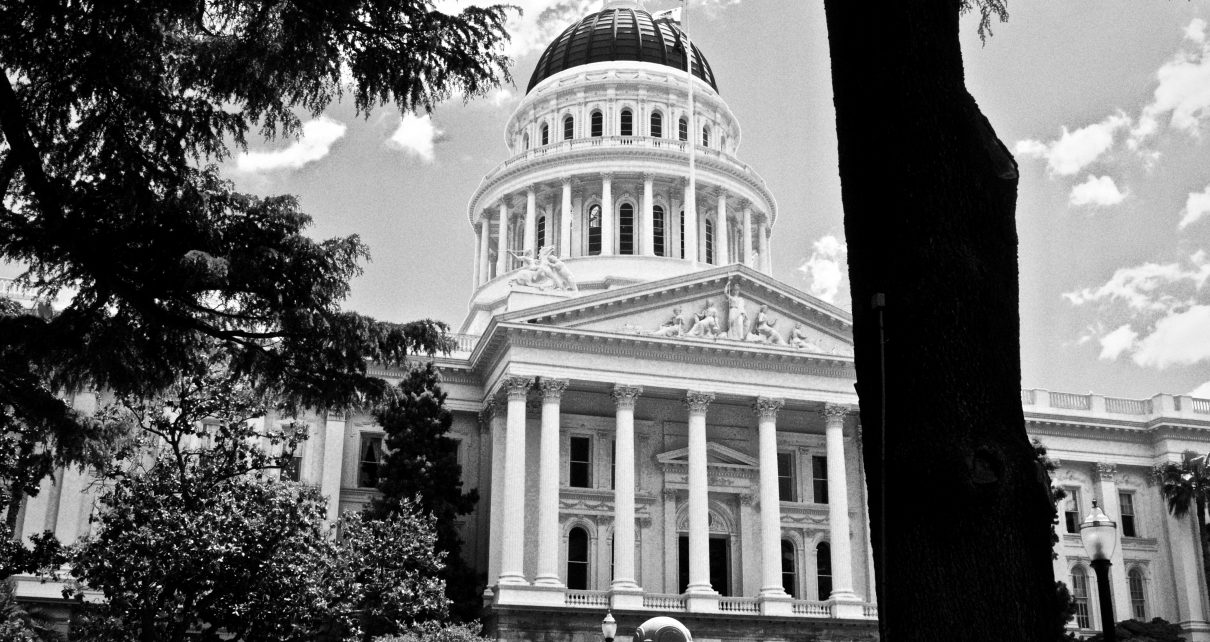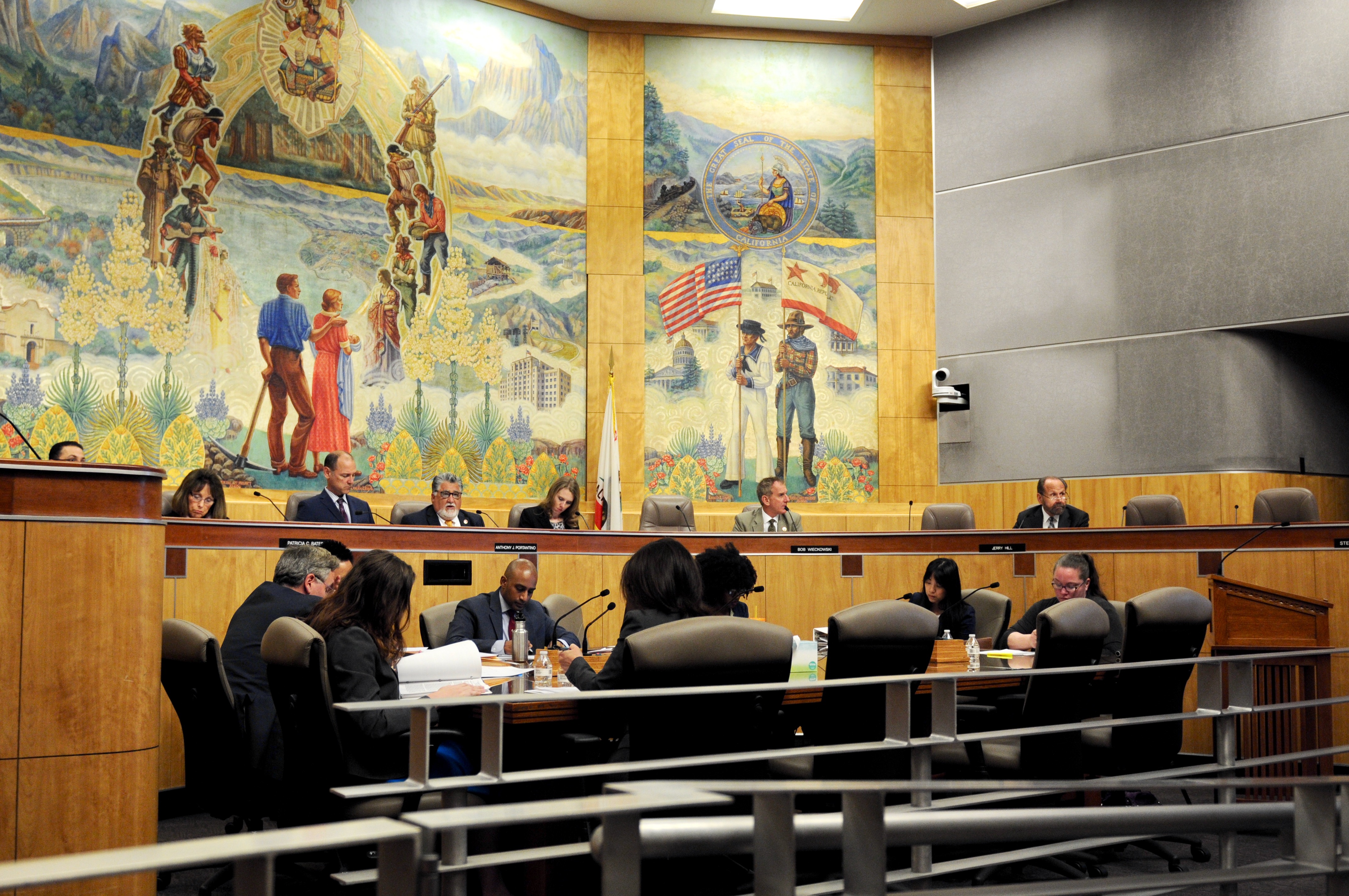
California Capitol Building. (Kevin Sanders for California Globe)
Utilizing Lobbying Coalitions
In most instances, lobbying coalitions are informal or semi-formal
By Chris Micheli, November 11, 2019 3:52 am
A vital and common aspect of lobbying in California and other jurisdictions is to join forces with other similarly situated parties so that a larger group is more powerful and effective than a single voice or even just a few. These lobbying coalitions can also be used so that one organization is not the sole voice on an issue, particularly if it happens to be a controversial issue or bill in which many groups have an interest.
All lobbying organizations utilize some variation of lobbying coalitions either jointly lobbying a bill or issue or at least signing a coalition letter or coordinating lobbying with other interested groups that share the same position. These organized efforts often draw more attention to an advocacy position and allow decision-makers to know that many groups share the same perspective on a pending bill or issue. In most cases, a collective voice is more effective than just one voice.
The key to running a successful lobbying coalition is to keep the group cohesive when working for or against an issue or measure. Lobbying coalitions can also provide other benefits, such as that individual companies or interest groups may not want to be the only ones publicly involved in a bill or issue. As such, a lobbying coalition provides “cover” for others to be public with their position. A lobbying coalition can also provide funding for hiring a grassroots firm or a media relations company to work on those aspects of a lobbying campaign.
Lobbying coalitions are most often run by trade associations who are familiar with coordinating activities of multiple players and interest groups. Coalitions can be a critical component of effective lobbying because elected officials and their staff are often more interested or persuaded when there are multiple voices weighing in on a bill or issue. For example, is an entire industry united in its support or opposition to a bill? Or do just a few companies care?
Lobbying coalitions are also important because they allow a division of labor among their participants by ensuring that all legislators are being lobbied on a bill or issue. In other words, a coalition and its participants will more likely ensure that all senators or assembly members are lobbied. That may not always occur if just one individual or group is lobbying a measure.
While it is often said that “two heads are better than one,” it is equally so that “too many cooks spoil the meal.” Both of these clichés are sometimes equally valid when applied to a lobbying coalition, so it is important for an organization’s leader be able to assess which one applies. But the benefits are that the goals of the lobbying coalition are more likely to be achieved together than independently.
Most lobbying coalitions are informal in nature. In other words, there is usually an individual or group that convenes interested parties. Their effort will be to educate the diverse groups and solicit them to participate in the lobbying efforts of the coalition. The convener usually schedules meetings of the lobbying coalition, coordinates advocacy efforts, spearheads letter-writing and media efforts, and ensures that the groups and individuals work together.
There are limited instances when a formal organization is needed. If circumstances warrant, a separate entity may be created, usually as a non-profit lobbying entity in which financial contributions will be solicited and used for media, grassroots, and lobbying efforts. In these formal coalitions, they may continue even after the legislation is enacted into law, such as to protect the reforms that were achieved from future legislative or regulatory attack.
However, in most instances, lobbying coalitions are informal or semi-formal. In these cases, there is no formal staff or budget; instead, an individual or group convenes interested parties on an on-going basis to coordinate lobbying activities. In these coalitions, the participating organizations utilize their own resources and staff to participate in the lobbying efforts of the coalition. Sharing of resources, talent and expertise is quite valuable in lobbying, especially when groups are often called upon to engage in numerous public policy debates.
The activities of these lobbying coalitions usually involve development of the strategy and tactics to be used by the group in lobbying for or against an issue or legislation. The coalition’s leader(s) usually is charged with coordinating the coalition’s lobbying activities, as well as any efforts to utilize media and/or grassroots support. It is important that this individual or group be well versed in the subject matter and have resources to contribute to the lobbying coalition’s effort. They often possess good organizational and advocacy skills but need additional “people power” to communicate with elected officials, staff and the media.
Coalitions also enable diverse groups to resolve any potential issues and ensure better collaboration, especially among those who may be competing in an industry sector. Very rarely can one group speak on behalf of entire industries if the issue affects a broad range of interests. Lobbying coalitions may serve to “get everyone on the same page” on an issue, as well as in support of key messages and advocacy efforts.
Ultimately, lobbying coalitions also provide important credibility with elected and appointed officials, and their respective staff members. By speaking with a “unified voice,” a coalition will be more likely to achieve success in its lobbying activities.
- Legislative Intent Does Not Equate to a Mandate - April 27, 2024
- Frequently Asked Questions about State Agency Ethics Training - April 26, 2024
- Frequently Asked Questions about When Elected Officials Take Office - April 25, 2024




